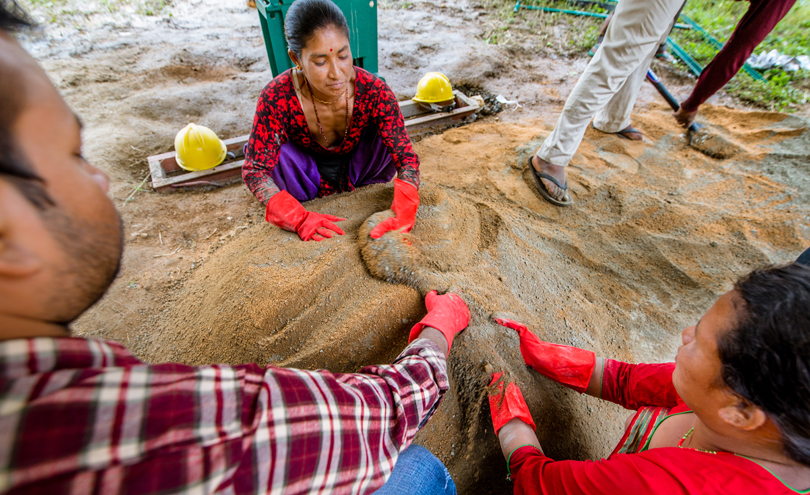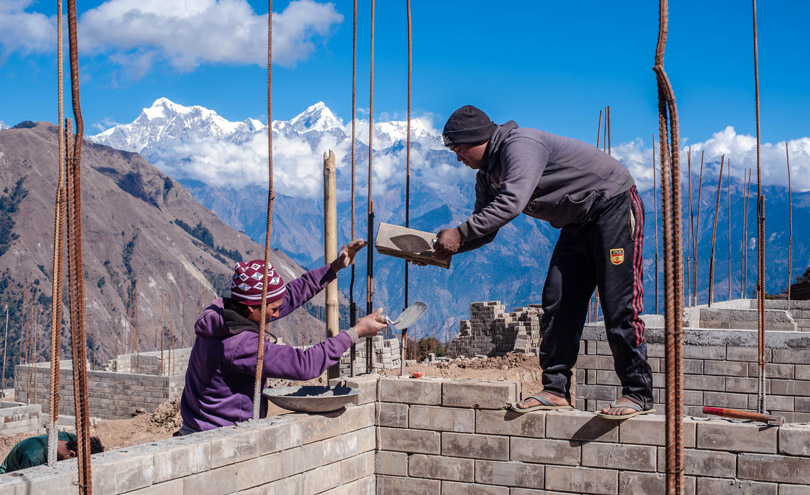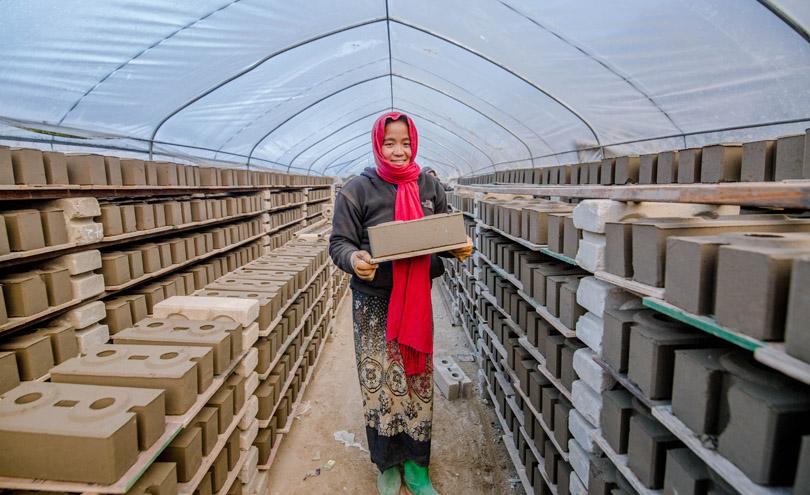A quarter of Nepal’s population live below the national poverty line, while half (49%) live in substandard housing. Disasters are common and have had a substantial impact on people’s lives and on their housing. Two intense earthquakes took place in 2015, killing more than 9,000 people and destroying around 800,000 homes, followed by extreme floods in 2017 and 2019. A programme of mass reconstruction was initiated. Thousands of homes were built, but the most vulnerable households, including those with older people, children, disabled and single adults, have struggled the most to rebuild in the self-build programmes.
To address this gap in support, Compressed Earth Bricks and Community Enterprises was set up by Community Impact Nepal (CIN), a Nepalese non-profit social purpose organisation. The project enables local entrepreneurs to rebuild homes in communities affected by disasters, while also creating sustainable micro-enterprises. To help build earthquake-resistant, eco-friendly houses, at low cost, the project has also developed manually-operated machines to allow rural communities and micro-entrepreneurs to produce compressed earth bricks (compressed stabilised earth blocks – CSEB) – using mainly local materials.
The project has reached all 31 districts of central Nepal affected by the 2015 earthquakes, with a particular focus on the 14 most affected districts. To date, over 3,500 houses have been built in remote rural areas of Nepal, housing 17,500 people, while 200 micro-enterprises have been established and 2,200 jobs created. The project has made an important contribution to gender and social inclusion, by encouraging the participation of women and marginalised groups. Approximately half of all masons trained in the construction of CSEB homes are from disadvantaged groups and almost a third (one-in-three) are women.

































